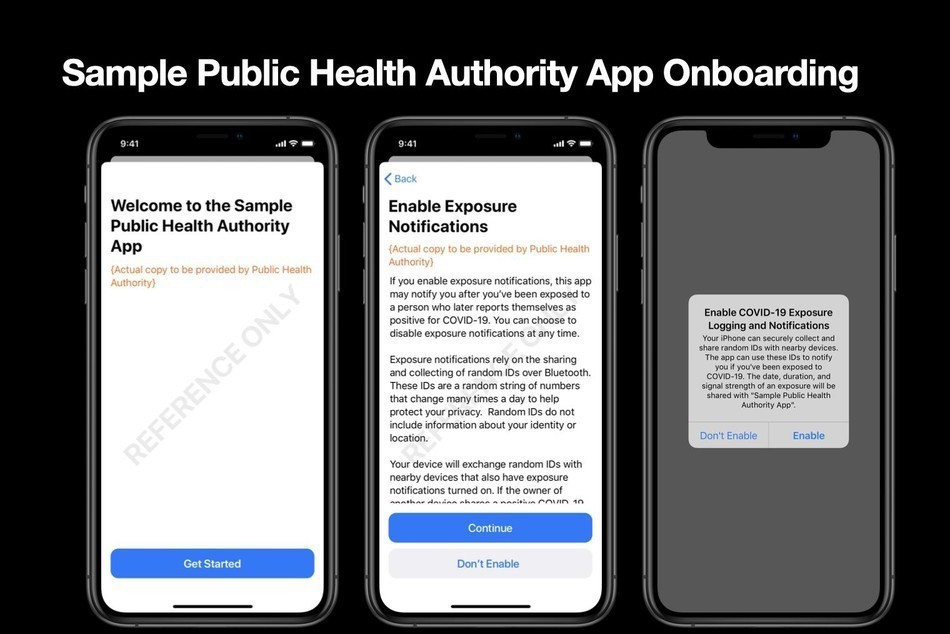Between “emergency call” and “battery” a new section named “exposure notifications” has appeared in the settings of iPhone users who have recently updated iOS.
These notifications are not enabled by default but must be activated manually by the smartphone user. They are based on technology developed since mid-April by Apple and Google for public health authorities. Right at the start, the two tech giants had announced that they would integrate the functionality directly and not via an external app.
Apart from France (and a few others) that has chosen to use "TousAntiCovid" for centralised management--meaning all contacts are traced back from the data sent to a central server--other European countries have chosen de-centralised technology for their national use in order to track people potentially exposed to a case of covid-19.
From a beacon (a small Bluetooth tag), the smartphone performs a contact check every ten to twenty minutes, says the latest technical regulation update, which dates back to 25 September, while the latest iOS deployment started on 20 October. These checks are then sent to a server – to an undefined geolocation. In case of a match between a positive case and another person, the latter will receive a notification inviting them to get in touch with authorities or get tested.
There are still some weaknesses to this solution however. Bluetooth, in the first place, makes it possible not to use GPS to locate someone, but its signal is partly reduced in a number of situations, according to an MIT study. For example, up to 15dB could be absorbed by the device, 5dB by the orientation of the phone, among other scenarios.
Furthermore, the system only works if the positive person declares themselves positive, which is a general weakness of the various applications used in different countries.
This article was originally published in French on Paperjam.lu and has been translated and edited for Delano.
